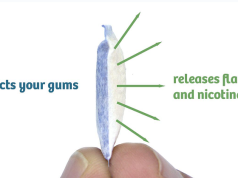A trend towards stricter measures on vaping products in Europe, is sparking concern among tobacco harm reduction (THR) advocates. Proposed restrictions include higher taxes, flavour bans, and stricter advertising rules. Critics warn that such policies could undermine smoking cessation efforts, limit access to safer alternatives, and inadvertently fuel black markets, risking public health and consumer safety.
Starting in January, Belgium will become the first European Union nation to ban the sales of disposable vapes. This decision is motivated by concerns over the products’ detrimental effects on the environment, but most of all the widespread fear that their appeal to minors is leading a whole new generation into a nicotine addiction.
While proponents of vaping products argue that vapes can assist individuals in quitting traditional smoking, critics obsess on their allure for younger audiences. Belgium’s move aligns with similar efforts in other countries. Germany and France are working on legislation to ban single-use vapes, while the UK, no longer part of the EU, plans to enact its own disposables’ ban in June 2024.
Portugal fails to differentiate between safer alternatives and combustible tobacco
Portugal has also recently revised its tobacco legislation, introducing significant changes related to vaping products. The new rules classify vapes as traditional tobacco products, affecting market accessibility and consumption trends. The new measures prohibit sales to minors and limit use in public spaces, with the aim of reducing nicotine addiction and fostering a smoke-free environment. However, as predicted by THR experts, these regulations are pushing consumers to explore alternative nicotine products, such as nicotine pouches (NPs), which have emerged as viable, tobacco-free options.
Free from combustion or vapour, nicotine pouches offer a smokeless, and discreet, therefore convenient alternative that aligns with evolving consumer needs. Being user-friendly, and falling outside conventional smoking bans, these products are becoming an increasingly attractive choice. NPs’ are also gaining popularity due to their customizable features, such as varying strengths and flavours, and most of all their lower health risks which align with the global shift toward wellness-focused lifestyles. This trend reflects changing consumer priorities and a growing preference for harm-reducing alternatives.








